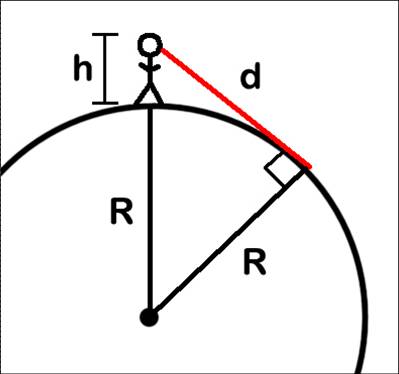Your horizon is determined by where you sit and how well you can see.
Pastor-Teacher
John Farley
Wednesday,
July 7, 2010
Your horizon is determined by where you sit and how well you can see.
ἀϕωρισμένος εἰς εὐαγγέλιον θευ
The New Testament use of aphorizo in a positive sense is “to be set apart for special service”.
The roots for this verb aphorizo combine to mean “to be off-horizoned”.
From a Jewish centered world to a Gentile centered world.
From works to grace.
From Pharisee to apostle.
From self-righteousness to Christ.
Mathematics - geometry- will show that every spot on the globe has its own unique horizon.
The emphasis here in Rom 1:1 is not so much the geographic will of God, but rather the operational will of God.
What will God have me do?
Each one of us has a “sphere of influence” in our Christian life.
The phrase “body of Christ” is used to designate all Church-age believers in their relationship with Jesus Christ. Jesus Christ is the Head and every member of the Church composes His body, Rom 12:4-5; 1Co 12:12-27.
One purpose God has in mind for your life after salvation is for you to discover this position in the Body and then make the most of it.
You have a plane to catch.
The plane leaves
at 1:30 PM.
The performance of the Christian way of life IS an impossibility... humanly speaking.

Your horizon is determined by (1) where you sit (location and height), and (2) how well you can see. Your position and your “visibility”.
There is this two-part reality to the life of a Christian after salvation:
(1) the positional, and
(2) the experiential.
The positional refers to what God did for us at the moment of salvation. This will stand for all of eternity, and God sees you as this right now. This does not change.
There is this two-part reality to the life of a Christian after salvation:
(1) the positional, and
(2) the experiential.
The positional refers to what God did for us at the moment of salvation. This will stand for all of eternity, and God sees you as this right now. This does not change.
The experiential refers to the course of our spiritual life in time. This changes according to the extent to which we live in the things God has provided for us.
The Bible tells us that we get the righteousness of God credited to us at the moment of salvation, Rom 4:5.
So why does the Bible ALSO say that righteousness is something that the believer is to pursue, 2 Tim 2:22??
The answer is that there is a righteousness that is imputed at the moment of salvation, and it governs our position or standing with God eternally.
There is also a second kind of righteousness that we can achieve in living the spiritual life in time, or an experiential righteousness that is based on positive volitional decisions after salvation.
So verbs addressing experiential realities are often in the imperative mood.
The mood is part of the “dog tag” of the Greek verb.
Voice, tense, and mood are the three basic identifiers of the function of the verb in Greek grammar.
The way in which the action is conceived (by the writer or speaker) with reference to reality can either be actual or possible.
The mood defines the category of the reality.
The indicative mood is the mood of absolute certainty or fact with regard to reality.
“God so loved the world that He gave His Son.”
The imperative mood is the mood of command or entreaty.
“Love your enemies”.
Indicative = positional
Imperative (and also subjunctive) = experiential
The Greek verbs for “raised” and “seated” in Eph 2:6 are in the indicative mood. They are dealing with positional realities.
Indicative = positional
Imperative (and also subjunctive) = experiential
The Greek verbs for “keep seeking” and “set your mind” in Col 3:1-2 are in the imperative mood. They are dealing with experiential possibilities.
The Lord Jesus Christ expanded Paul’s horizon before He commissioned him to be His messenger with the good news of God, the Gospel.
He also expanded yours!
When God sets us apart for service, the way He does it is to elevate us.
We receive our position in Christ, who is seated at the Right Hand of the Father, at salvation.
Then when we have learned enough doctrine to actually believe and see that we are where He has put us (visibility), then we are promoted in experience to live in that calling and walk in those good works.